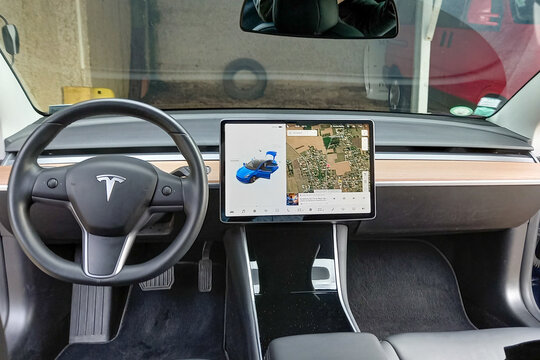In recent years, Brazil has emerged as a surprising contender in the global electric vehicle (EV) race. According to Bloomberg Green, the country’s EV market has seen a dramatic increase, with a 60% growth in EV sales in 2023 alone. This surge is not just a local phenomenon but part of a broader trend where emerging markets are rapidly adopting electric mobility. In this article, we’ll explore how Brazil is leading the charge in this electrifying revolution, the factors driving this growth, and what it means for the future of transportation in emerging markets.
The Growth of Electric Vehicles in Brazil
A Rapidly Expanding Market
Brazil’s EV market is experiencing unprecedented growth. As reported by InsideEVs, the country registered over 100,000 electric and hybrid vehicles in 2023, a significant increase from previous years. This boom is fueled by a combination of government incentives, improved charging infrastructure, and a growing environmental consciousness among consumers.
- Government Incentives: The Brazilian government has introduced various tax rebates and subsidies to make EVs more affordable for the average consumer. These incentives are crucial in a market where the cost of EVs has traditionally been a barrier to adoption.
-
Charging Infrastructure: The development of a robust charging network is essential for EV adoption. Brazil has been investing heavily in expanding its charging infrastructure, with companies like Enel X and Neoenergia leading the way. By 2025, the country aims to have over 10,000 public charging stations, making it easier for EV owners to travel long distances.
Key Players in Brazil’s EV Market
Several automakers are capitalizing on Brazil’s growing demand for electric vehicles. Brands like BYD, Volkswagen, and Hyundai are making significant investments in local manufacturing and assembly plants. This not only reduces the cost of importing vehicles but also creates jobs and stimulates the economy.
- BYD: This Chinese manufacturer has become a dominant player in Brazil, offering a range of affordable EVs that cater to the local market’s needs.
- Volkswagen: With its ID.4 model, Volkswagen is targeting the urban consumer looking for a stylish and efficient electric SUV.
- Hyundai: Known for its innovative approach, Hyundai is focusing on hybrid models that offer a practical transition for traditional car users.
Why Emerging Markets Are Embracing EVs
Environmental and Economic Benefits
Emerging markets like Brazil are recognizing the dual benefits of electric vehicles: environmental sustainability and economic opportunity.
- Environmental Impact: With urban areas suffering from air pollution, electric vehicles offer a cleaner alternative, reducing emissions and improving air quality. According to the IEA, widespread EV adoption could cut Brazil’s carbon emissions by 30% by 2030.
-
Economic Growth: The EV industry is creating new economic opportunities, from manufacturing jobs to advancements in battery technology. As reported by Reuters Mobility, Brazil’s automotive sector could see a 15% increase in jobs over the next five years due to EV-related activities.
Overcoming Challenges
Despite the positive outlook, Brazil faces challenges in its EV journey. Battery costs remain high, and there is a need for continuous investment in infrastructure. However, technological advancements and global collaborations are helping to mitigate these issues.
- Battery Innovations: Advances in battery technology are crucial for reducing costs and improving the efficiency of electric vehicles. Companies and research institutions are working on next-generation batteries that promise longer ranges and shorter charging times.
-
International Partnerships: Collaborations with international companies are vital. For instance, partnerships with European and Asian firms are helping Brazil access cutting-edge technology and expertise in EV production and infrastructure development.
Practical Tips for Brazilian Consumers
How to Choose the Right EV
For Brazilian consumers considering an electric vehicle, several factors should be taken into account:
- Budget: Evaluate the total cost of ownership, including potential savings on fuel and maintenance.
- Range: Consider the vehicle’s range and how it fits with your daily commute and travel needs.
- Charging Options: Ensure access to charging stations at home and along your regular routes.
Where to Buy
Brazil offers a variety of places to purchase EVs, from traditional dealerships to online platforms. Some popular options include:
- Dealerships: Brands like BYD and Volkswagen have authorized dealerships across major cities.
- Online Platforms: Websites offer a convenient way to compare models, prices, and specifications.
Charging Your EV
Charging an electric vehicle in Brazil is becoming increasingly convenient. Here are some tips:
- Home Charging: Installing a home charger is ideal for overnight charging and maximizing convenience.
- Public Charging Stations: Use apps like PlugShare to locate nearby charging stations and plan longer trips accordingly.
Conclusion: The Future of Electric Vehicles in Emerging Markets
Brazil’s rapid adoption of electric vehicles is a testament to the potential of emerging markets to drive the global shift towards sustainable transportation. As battery technologies improve and charging infrastructures expand, the barriers to EV adoption will continue to diminish. For consumers and businesses alike, the benefits are clear: cleaner air, economic growth, and a step towards a more sustainable future.
As we look ahead, it’s evident that Brazil and other emerging markets will play a pivotal role in the global EV landscape. Are you ready to join this revolution? Share your thoughts and experiences with electric vehicles in the comments below and let’s continue the conversation on sustainable mobility.

